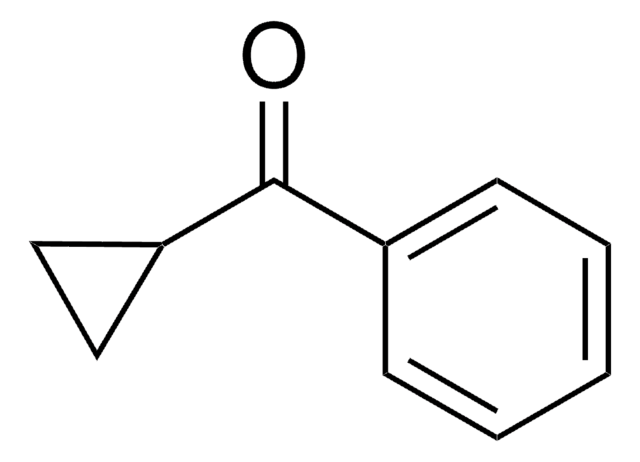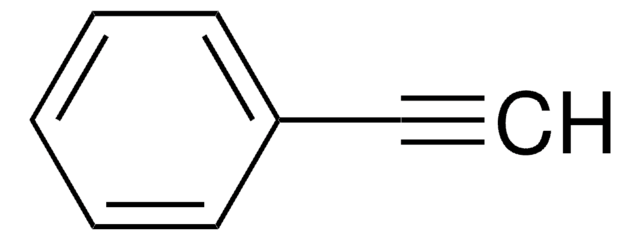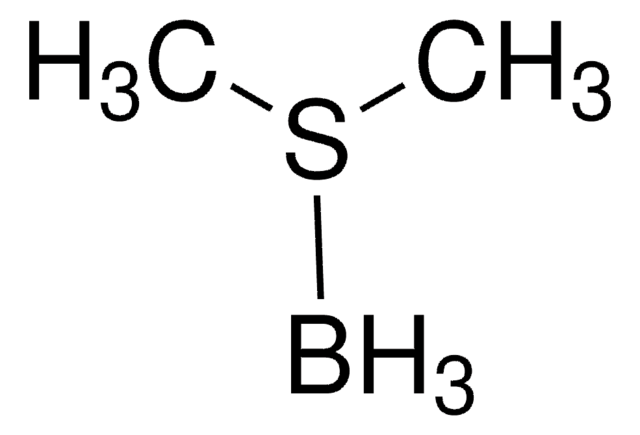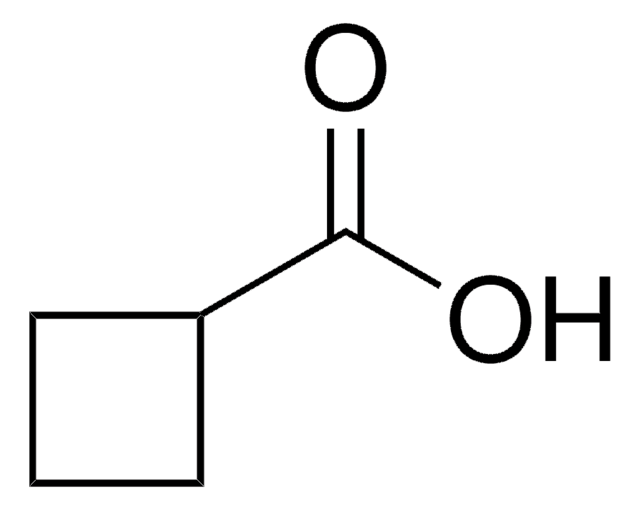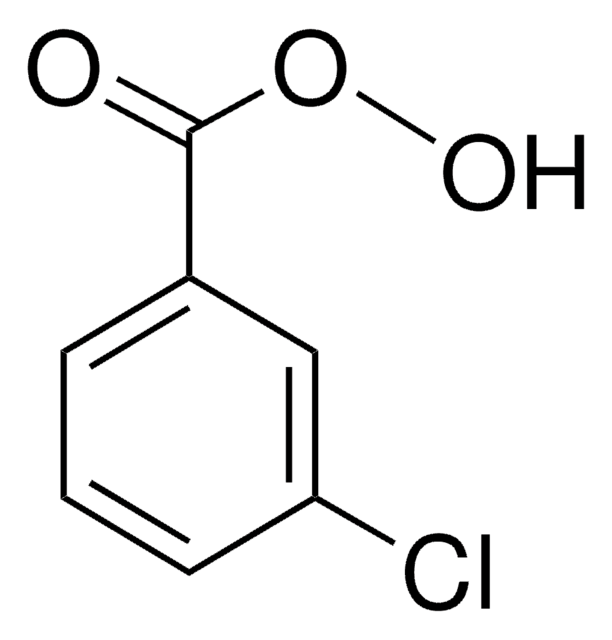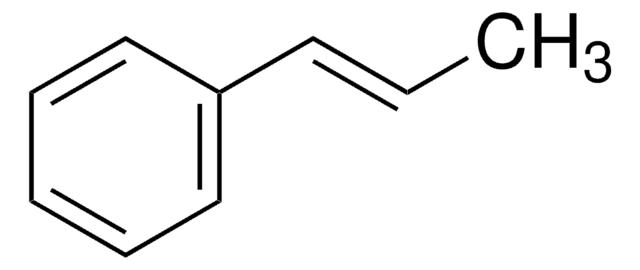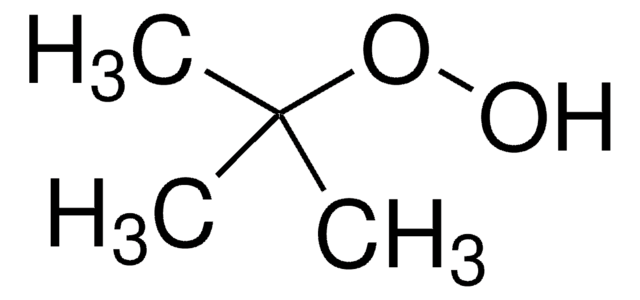158011
Cyclopropylbenzol
97%
Synonym(e):
Phenylcyclopropan
Anmeldenzur Ansicht organisationsspezifischer und vertraglich vereinbarter Preise
Alle Fotos(2)
About This Item
Lineare Formel:
C6H5C3H5
CAS-Nummer:
Molekulargewicht:
118.18
EG-Nummer:
MDL-Nummer:
UNSPSC-Code:
12352100
PubChem Substanz-ID:
NACRES:
NA.22
Empfohlene Produkte
Assay
97%
Form
liquid
Brechungsindex
n20/D 1.533 (lit.)
bp
173.6 °C/753 mmHg (lit.)
Dichte
0.94 g/mL at 25 °C (lit.)
Funktionelle Gruppe
phenyl
SMILES String
C1CC1c2ccccc2
InChI
1S/C9H10/c1-2-4-8(5-3-1)9-6-7-9/h1-5,9H,6-7H2
InChIKey
VFSFCYAQBIPUSL-UHFFFAOYSA-N
Verwandte Kategorien
Allgemeine Beschreibung
Cyclopropylbenzene is a cyclopropylarene and its oxidation by rabbit liver microsomal cytochrome P-450 has been studied. Gas-phase structure of cyclopropylbenzene has been studied by ab initio computational, microwave spectroscopic and electron diffraction techniques.
Hier finden Sie alle aktuellen Versionen:
Besitzen Sie dieses Produkt bereits?
In der Dokumentenbibliothek finden Sie die Dokumentation zu den Produkten, die Sie kürzlich erworben haben.
C J Suckling et al.
The Biochemical journal, 232(1), 199-203 (1985-11-15)
The arylcyclopropanes (cyclopropylarenes) cyclopropylbenzene and diphenylcyclopropane are oxidized by rabbit liver microsomal cytochrome P-450, both by the microsomal fraction and by the purified cytochrome in a reconstituted system. The products formed, principally benzoic acid, are due to an unusual triple
P Riley et al.
Xenobiotica; the fate of foreign compounds in biological systems, 24(1), 1-16 (1994-01-01)
1. The metabolism of cyclopropylbenzene (1a) and 4-cyclopropylanisole (1b) was studied using liver microsomal preparations from control, phenobarbital- and beta-naphthoflavone treated rats. 2. With all three types of microsomes 1a was metabolized by benzylic hydroxylation to give 1-phenylcyclopropanol and by
Q Shen et al.
The Journal of organic chemistry, 66(17), 5840-5845 (2001-08-21)
Ab initio computational, microwave spectroscopic, and electron diffraction techniques have been used to study the gas-phase structure of cyclopropylbenzene. Theoretical calculations at the HF, B3LYP, and MP2 levels for basis sets 6-31G(d) and 6-311G(d) have been carried out. Both MP2
The oxidation of cyclopropyl benzene by rat liver microsomal cytochrome P-450: an unusual triple oxidation of a substrate.
K E Suckling et al.
FEBS letters, 145(2), 179-181 (1982-08-23)
P Taavitsainen et al.
Drug metabolism and disposition: the biological fate of chemicals, 29(3), 217-222 (2001-02-22)
Currently, there are no selective, well characterized inhibitors for CYP2A6. Therefore, the effects of trans-(+/-)-2-phenylcyclopropylamine (tranylcypromine), a potent CYP2A6 inhibitor, on human liver microsomal cytochromes P450 (CYP) were studied to elucidate its selectivity. The IC50 value of tranylcypromine in coumarin
Unser Team von Wissenschaftlern verfügt über Erfahrung in allen Forschungsbereichen einschließlich Life Science, Materialwissenschaften, chemischer Synthese, Chromatographie, Analytik und vielen mehr..
Setzen Sie sich mit dem technischen Dienst in Verbindung.